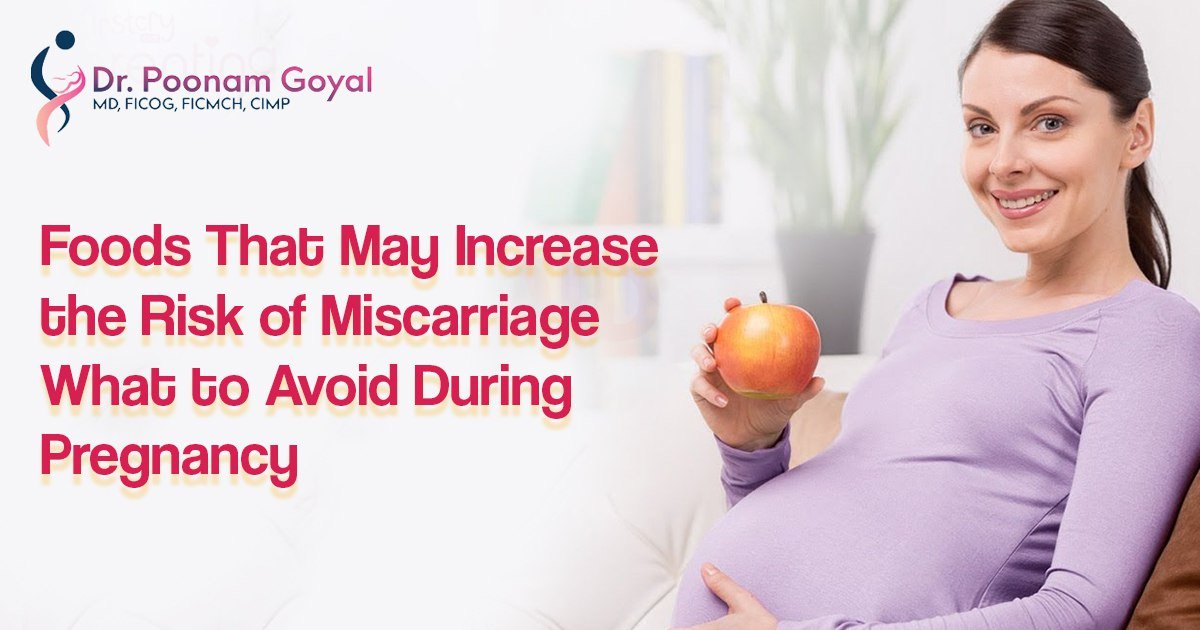
Pregnancy is a time filled with excitement, hope, and a little bit of worry. Every expecting parent wants to do everything possible to protect their baby. While most people know that smoking or drinking alcohol can harm pregnancy, many aren’t aware that certain foods can also increase the risk of miscarriage.
Dr. Poonam Goyal, who is considered as the best IVF Doctors in Delhi, often meet expecting mothers who feel overwhelmed by conflicting advice online. So, let’s make it simple, here’s what to avoid, and why it matters.
Unpasteurized milk, cheese, and juices may contain harmful bacteria like Listeria or E. coli. These can cause severe infections that sometimes lead to miscarriage. Always check labels for “pasteurized” before consuming.
Raw or undercooked animal products can carry Salmonella, Toxoplasma, or other bacteria that put pregnancy at risk. Cooking food thoroughly is one of the simplest ways to protect both mother and baby.
Shark, swordfish, king mackerel, and tilefish contain high mercury levels that can affect fetal brain development and may increase pregnancy complications. Opt for low-mercury fish like salmon, tilapia, or trout.
Moderate caffeine (under 200 mg per day) is generally considered safe, but high intake has been linked to increased miscarriage risk. That’s about one regular cup of coffee, so watch those refills and hidden caffeine in energy drinks.
Raw alfalfa, clover, or mung bean sprouts can harbor bacteria that thrive in warm, humid conditions. Always cook sprouts before eating during pregnancy.
Cold cuts, hot dogs, and deli meats can sometimes contain Listeria. If you want to enjoy them, heat them until steaming hot to kill any bacteria.
During pregnancy, the immune system naturally shifts to protect the growing baby. This makes the body more vulnerable to foodborne illnesses. Even if symptoms seem mild for the mother, certain infections can reach the placenta and affect the baby’s health.
At Dr. Poonam Goyal, we believe in empowering women with clear, evidence-based guidance so they can focus on enjoying this special time instead of worrying unnecessarily.
It’s natural to feel anxious about “doing everything right” in pregnancy. Remember, avoiding high-risk foods is only part of the journey. Balanced nutrition, emotional well-being, and regular prenatal check-ups all work together to support a healthy pregnancy.
We’ve seen many women consulting the best IVF doctor in Delhi, Dr. Poonam Goyal, and feel more confident once they have a clear plan. Food safety is just one piece of that plan, but it’s a powerful one.
Pregnancy isn’t about living in fear; it’s the time to live those moments, making informed choices makes you and your baby safe. By avoiding certain high-risk foods and following safe cooking practices, you’re giving your little one the healthiest possible start.
If you or your loved ones need personalized pregnancy nutrition advice or have concerns about your diet, consult Dr. Poonam Goyal, who is considered the Best IVF doctor in Delhi, She offers compassionate, expert care to guide you every step of the way